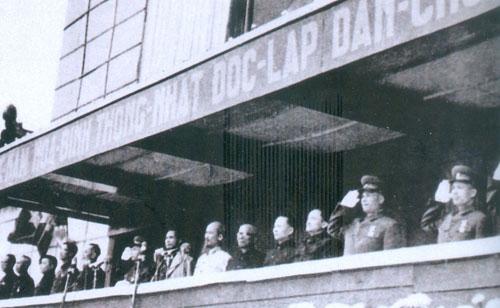Chi tiết tin - Quảng Bình (Tiếng Anh)
Complete liberation for North Vietnam
According to the Geneva Agreements, the resistance forces against the French colonialists would regroup to the North while the French withdrew then troops out of North Viet Nam. Viet Nam was temporarily divided into two regions at the 17th Parallel across Ben Hai river. On May 1, 1955, the Party Central Committee, the Government and President Ho Chi Minh returned to Ha Noi. The Vietnamese revolution turned to a new phase.
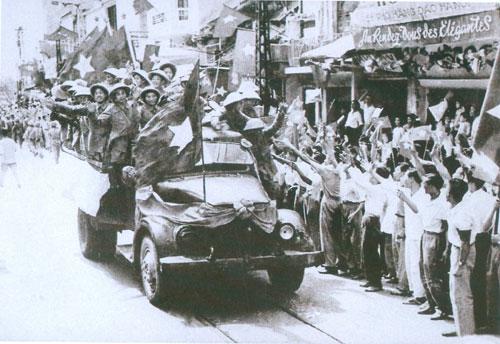 |
|
Civilians of Hanoi greeting triumphant soldiers |
|
|
|
Civilians of Ha Noi welcoming the Party Central Committee, the Government and President Ho Chi Minh returning to the city, January 1, 1955 |
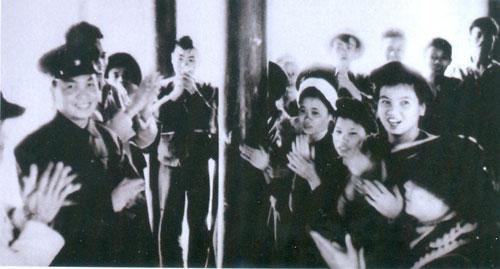 |
|
General Vo Nguyen Giap visiting Nguyet Xa village, Thai Binh province, an exemplary fighting village in the Northern Delta during the French resistance, 1955 |
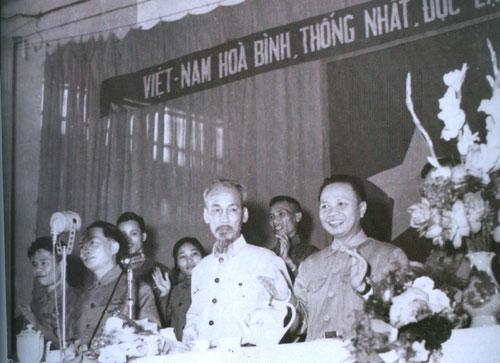 |
|
President Ho Chi Minh, General Secretary of the Party Central Committee Truong Chinh and General Vo Nguyen Giap in the Second National Congress of Heroes and Emulation Fighters, August 31, 1955 |
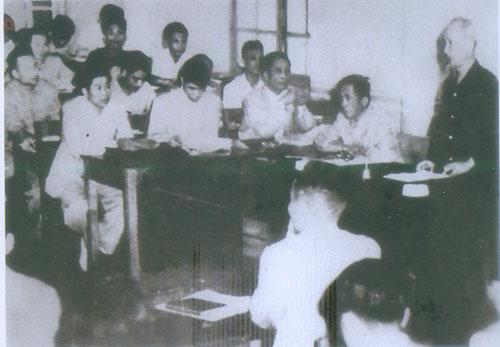 |
|
President Ho Chi Minh chaired the fifteenth Plenum of the Party Central Committee (expanded) in January 1959 to approve guidance for uprisings to seize power in South Vietnam. |
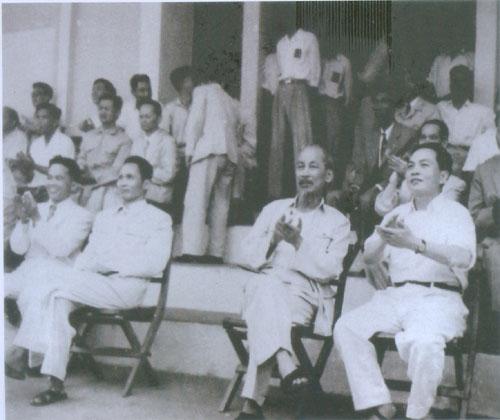 |
|
President Ho Chi Minh, Prime Minister Pham Van Dong and General Vo Nguyen Giap attending the Physical Training and Sports Festival of the People’s Armed Forces at the Army Club in Ha Noi, 1959 |
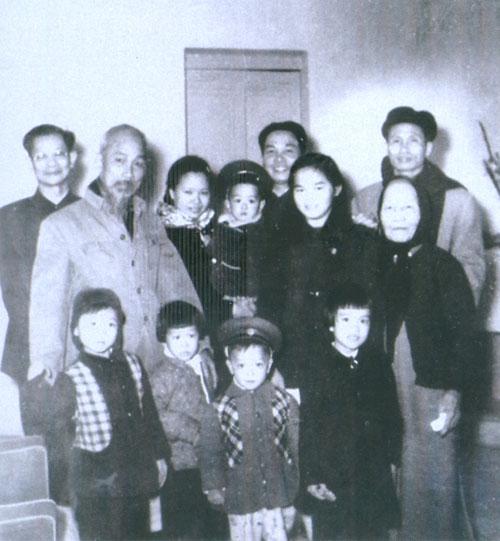 |
|
President Ho Chi Minh, Prime Minister Pham Van Dong and Chairman of People’s Committee of Ha Noi city Tran Duy Hung visiting General Vo Nguyen Giap’s family |
Source: "Commander-in-chief General Vo Nguyen Giap" Book
- The Dien Bien Phu Campaign (22/10/2013)
- The strategic 1953-1954 Winter-Spring Campaign (25/10/2013)
- The Bien Gioi (Border) Campaign 1950 (27/10/2013)
- The first General of Vietnamese People's Army (27/10/2013)
- From national resistance to Dien Bien Phu Victory (29/10/2013)
- Pre-uprising period, general uprising & establishment of democratic republic of Vietnam (26/10/2013)
- International friendship (26/10/2013)
- Vo Nguyen Giap: Vietnam’s last centurion* (27/10/2013)
- Hometown, youth and revolution (23/10/2013)
- General Vo Nguyen Giap's devotion to science-technology, culture and art (19/10/2013)


